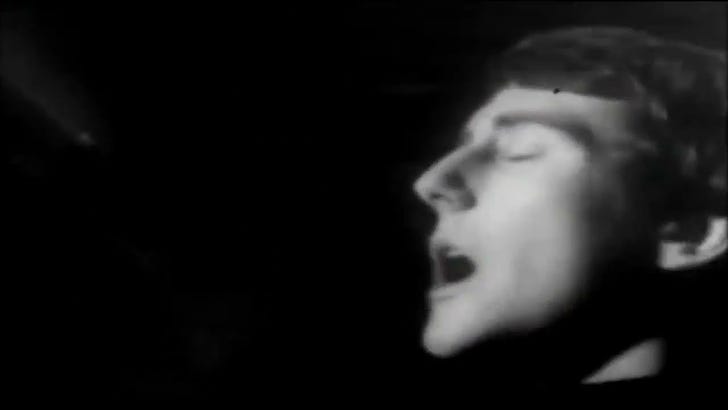Mike Pinder, the pianist and one of the founding members of the seminal rock band The Moody Blues, passed away this week at 82. Another of the Moody Blues co-founders (as well as a co-founder of the 70’s band Wings with Paul McCartney), Denny Laine, preceded him by only a few months at the age of 79. The Moody Blues played a more underground role in my enormous treasury of musical triggers and memories throughout the more seminal years of my growing love of lyric and melody.
I believe my introduction came with “Nights in White Satin,” released as a single in 1972. Naturally, my introduction came through local radio stations and Casey Kasem’s American Top 40. As I listen to its ethereal splendor today, I remember growing weary of it on the charts because it likely felt too slow for me as a 14-year-old looking to move. Sometimes, the ballads and slower tunes felt as though they would never end when you listened to a countdown. There had been some previous chart successes by the band in 1970 (“Question”), 1971 (“The Story in Your Eyes”), and earlier in 1972 (“Isn’t Life Strange”), but I hadn’t quite taken notice until “Nights” went to #1. Once The Moody Blues became a player, I fully appreciated 1973’s “I’m Just a Singer in a Rock and Roll Band.”
Although I was an active participant in the world of music in the 1960s, I was young and needed to fully tune into the full breadth of what was on offer. Some music came to me initially; some found me in other ways after original releases. In the case of The Moody Blues, I was introduced to “Go Now,” which highlights today’s tribute, and the beautiful “Tuesday Afternoon,” which ranks among the best in the psychedelic era. The band, who continued to record (with only one three-year break) through 2018, did not fully stay on my radar with later music, but their power on offer in the period I was listening was terrific.
Dickey Betts also passed away last week at the age of 80. There is no way any soundtrack to my life would not include the band he co-founded in 1969, the Allman Brothers. I grew up on Long Island, New York, and although (as mentioned above) the world of music was quite evident to me throughout the 1960s, it was the 1970s that built the foundation for a life-long love for the overabundance of emotions and warm cuddly blanket of safety music provides.
The Allman Brothers were ubiquitous on Long Island in the 1970s. There wasn’t a radio station worth its merit that wasn’t playing either them, Lynyrd Skynyrd, or Led Zeppelin throughout the day. I believe it was mandatory. We, the teenagers, blasted them in our cars (if we had a car) or listened to them at parties, at the beach, outside smoking cigarettes during breaks, or in the various places we would gather to party in the pre-computer and video game world of the 1970s (think “Dazed and Confused.”)
The Allman Brothers were an early live rock influence for me. They played in numerous places throughout my younger teens, and I remember going to them in one way or another to be part of the crowd. I saw them at the University building steadily around my home in Stony Brook (before Duane Allan’s death). I also remember seeing them at Nassau Coliseum and once in Central Park. I remember not loving the music initially because, in some cases, they would play long, extended versions with loads of instrumentals. These arrangements worked magnificently when I was high enough to sway and flow along with the artistry, but in some cases, my impatient teen mind would want to know what was coming next. What else would they be playing? When is this going to end? My ear for art evolved and further developed as time went on, and although I can honestly say I did appreciate the sound some of these bands produced at that time, I know I learned to grasp it more and in different ways later.
Admittedly, The Allman Brothers may have one of my favorite album titles with, “Eat a Peach,” a title that represented peace to the band. It was derived from a quote by Duane when an interviewer asked him what he was doing to help the revolution. He responded, “You can’t help the revolution because there’s just evolution… Every time I’m in Georgia, I eat a peach for peace.”
The brothers colored our early 70s university town existence with musical memories such as “Whipping Post,” “Midnight Rider,” the melodic “Blue Sky,” “Ain’t Wastin’ Time No More,” “Melissa,” “Statesboro Blues,” and, of course, their only Top 10 crossover, “Ramblin’ Man.”
Beyond the Moody Blues and the Allman Brothers are the losses of Eric Carmen of The Raspberries (“Go All The Way”), Melanie (“Lay Down – Candles in the Wind,” and “Brand New Key,” and Karl Wallinger of World Party (“Ship of Fools”). These artists and more will always have a home in the musical storage boxes in my brain. It’s always so sad, however, to say goodbye to both of them and the recognition of the period they represent to me.
We’ve already said “goodbye.”
Since you gotta go, oh you’d better
Go now, go now, go now (go now ooh)
Before you see me cry?
I don’t want you to tell me just what you intend to do now
‘Cause how many times do I have to tell you darlin’, darlin’
I’m still in love with you now
Whoa oh oh oh


